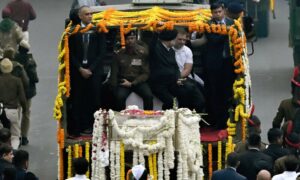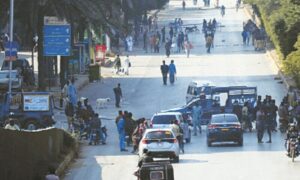South Korea’s parliament has voted to impeach acting President Han Duck-soo, two weeks after President Yoon Suk Yeol was impeached over his brief attempt to impose martial law on December 3.
A total of 192 lawmakers voted in favour of Han’s impeachment, surpassing the 151 votes needed for the motion to succeed.
Han, who took over as acting president after Yoon’s impeachment, had been expected to lead the country out of political turmoil.
However, opposition lawmakers argued that Han was blocking the completion of Yoon’s impeachment process, particularly by preventing the appointment of three judges to fill vacancies on the Constitutional Court.
The opposition had hoped these new judges would improve the chances of upholding Yoon’s impeachment, which hinges on the Court’s decision.
Dramatic scenes in parliament
The impeachment vote was marked by dramatic scenes in the National Assembly. Lawmakers from the ruling People Power Party (PPP) protested the vote’s validity after National Assembly Speaker Woo Won-shik confirmed that only a simple majority—151 votes—was required, unlike the 200 votes needed for Yoon’s impeachment.
In protest, many PPP MPs gathered in the center of the chamber chanting, “invalid!” and “abuse of power!” Most of them boycotted the vote.
Political fallout and uncertainty
As per South Korean law, Han will be suspended from his duties as acting president once he is officially notified by parliament.
Finance Minister Choi Sang-mok is set to assume the role of acting president. However, Han’s impeachment must still be confirmed by the Constitutional Court, which has 180 days to rule on whether the decision should stand.
Han has expressed respect for the parliamentary decision and stated that he would suspend his duties to avoid further chaos.
This marks the first time in South Korea’s democratic history that an acting president has been impeached. Han’s removal is expected to deepen the political gridlock and uncertainty, with both political sides blaming each other for the country’s current state of crisis.
Context of the impeachment crisis
The political instability began earlier in December when President Yoon attempted to impose martial law, citing the need to protect the country from “anti-state” forces.
The measure was swiftly reversed after 190 lawmakers voted it down.
The incident triggered widespread protests, with many MPs breaking barricades to enter the voting chamber. Since then, Yoon and his government have faced legal consequences, with top officials arrested and indicted on charges of insurrection.
The political and economic fallout from Yoon’s brief martial law order has contributed to growing uncertainty in the country.
On Friday, the South Korean won plunged to its lowest value against the dollar since the 2008 global financial crisis, with both political parties blaming one another for the crisis.






